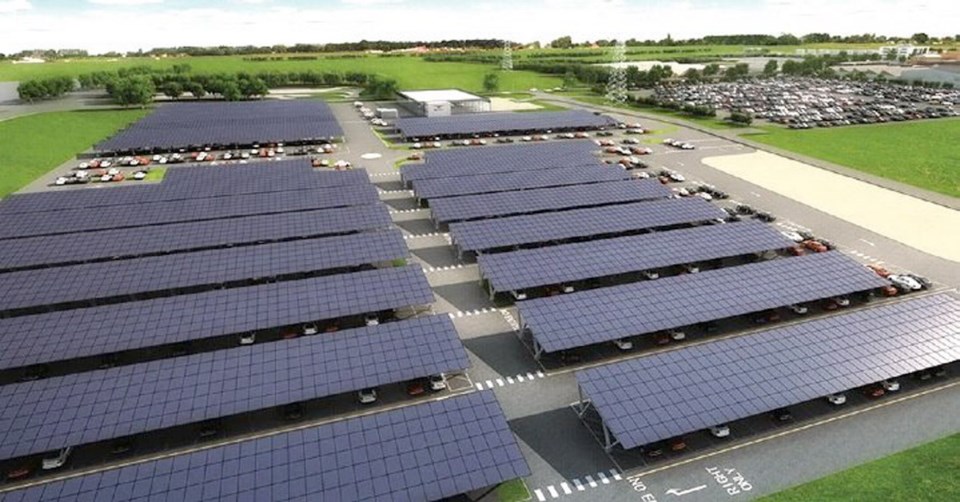Construction has begun on a 10,000-unit solar array to cover a parking lot at the Bentley production plant in Crewe, England. Once completed, the “solar-farm parking lot” will deliver about one-quarter of the plant’s entire energy needs with about 2.7 megawatts of power, reports automotive-lifestyles magazine Motor Authority. Including a 20,000-plus solar panel rooftop constructed in 2013, the facility will have more than 30,000 panels operating, or enough energy to power 1,750 homes. With backing from the United Kingdom’s innovation agency, Bentley expects the solar-car park to be completed in about six months. Once finished, the parking lot will accommodate nearly 1,400 cars. Bentley’s first electrified vehicle, the Bentayga Hybrid, provides 50 kilometres of electric-only range.
Waymo autonomous taxis envelop Phoenix
Autonomous-car technology company Waymo’s first commercial self-driving taxi service will be able to operate 24/7 within the city of Phoenix, Arizona, later in 2018. It will cover a “geofenced” area of about 260 square kilometres. Waymo head John Krafcik said in April that the public “will be able to take our cars anywhere in our service area.” The geofenced area within the sprawling city will cover dense urban centres, high- and low-speed roads and suburbs, Krafcik said. “There’s every driving scenario to be imagined.” Regarding the fatal event in March in which an Uber test car in self-driving mode struck and killed a pedestrian in Arizona, Krafcik said Waymo’s cars would have detected the woman and avoided the collision.
Electric-racing series no longer needs a second car to go the distance
Demonstrating how far battery technology has progressed in recent years, each team competing in the growing global Formula E racing series will race just one car per driver, “like every other racing series on the planet.” Until now, all teams fielded two cars per driver per race, reports technology website TechCrunch. In a kind of “equivalent of refuelling,” drivers would switch to a second identical fully charged car about halfway through each race, and finish with it. Nine global auto manufacturers have signed on to support and compete in the series through 2020.
U.S. “risks being left behind” on green technology
Clean, low-cost energy is transforming the U.S. economy, reports the sustainable-energy lobby group Natural Resources Defense Council, which says that research needs federal funding to keep up with the rest of the world. In a report called Revolution Now, the group compiled publicly available data to illustrate advances made in the areas of wind and solar power, LED light bulbs and electric vehicles. Research and development into clean energy is “propelling breakthrough innovations from the lab into our everyday lives,” said spokeswoman Elizabeth Noll. “There’s no shortage of ideas for our universities, national labs and clean-energy innovators to explore and help develop,” she said. Other countries are “racing ahead” with investment in clean energy R&D, “but America risks being left behind without sustained federal R&D investment.”
VW makes “massive” e-mobility commitment
The Volkswagen Group is charging ahead to expand production of electric vehicles worldwide “on a massive scale.” The automaker announced in mid-March that 16 of its plants around the world will make battery-powered vehicles by the end of 2022. CEO Matthias Müller said the “Roadmap E” plan is picking up speed: The VW Group currently builds electric vehicles at just three locations, he said; within two years, another nine factories will be added. To ensure adequate battery capacity, partnerships with battery manufacturers for Europe and China have been signed, Müller said. A supplier decision for North America “will be taken shortly,” he said. Nine new electric vehicles are on track to join the VW Group’s product lineup in 2018.



